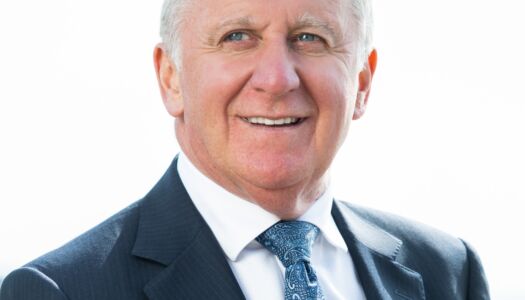It’s interesting to note that March 2023 marks 10 years exactly since Jersey signed a FATCA style agreement with the UK.
At the time, it was seen as a milestone moment – reflecting Jersey’s objective to act as a leading participant in the development of standards to combat tax evasion, while at the same time upholding an appreciation of compliant confidentiality. The agreement, which mirrored the US FATCA regime, introduced the previous year, was signed after an extensive industry consultation process.
Although Jersey had signed several information exchange agreements before that point, it came at a time, following the global financial crisis, of accelerated change in the area of information exchange, transparency and disclosure – with the OECD’s Common Reporting Standard automatic exchange of information regime being introduced the following year.
Fittingly, it is also just over five years ago since the OECD Global Forum confirmed that Jersey was fully compliant with all standards of international tax transparency – the announcement was seen as an endorsement of Jersey’s world-class tax transparency framework and its ability to make sure that the framework was working well in practice.
Of course, things have moved on considerably since 2013 – today, disclosure, beneficial ownership registers, reporting and information exchange are accepted elements of the modern cross-border financial system.
Nevertheless, the pace of change shows no signs of letting up; greater regulatory demands combined with operating in an increasingly complex and volatile geopolitical environment continue to put a significant emphasis on compliance and good governance.
It’s telling that the latest Labour Market Survey for Jersey shows that jobs in ‘accounting and compliance’ in Jersey grew by some 27% over the past five years, with those roles now making up more than 11% of the total financial services workforce.
High Standards
Being a well-regulated, responsible jurisdiction with a commitment to high standards of governance that is focussed on its ability to mobilise capital safely and securely remains integral to Jersey’s offering.
And with MONEYVAL’s – the European body tasked with inspecting whether finance centres meet international anti-money laundering and the financing of terrorism standards – assessment on the horizon later in 2023, compliance and governance are particularly high on our agenda this year.
But it’s an issue for IFCs more widely – PwC’s recently released Annual Global CEO Survey, for instance, found that 49% of CEOs were making significant change to risk management in response to client and stakeholder expectations with a further 44% looking to make some change in 2023.
Of course, against this background, jurisdictions still need to stay competitive and finding the sweet spot of proportionate regulation – having a robust framework capable of combatting financial crime without stultifying business – is vital.
Thankfully Jersey has a long history in finding that line.
Unlike some other jurisdictions, Jersey has always looked to be on the front foot; ahead of MONEYVAL’s assessment we have already taken clear steps, from paving the way for the introduction of ‘deferred prosecution agreements’ and ‘failing to prevent’ financial crime an offence, to undertaking comprehensive overseas market risk assessments.
And adopting best practice in financial regulation has long been fundamental to how we operate. We have been swift to implement international standards and initiatives and have been endorsed by major international bodies such as the OECD and IMF for that approach.
We have kept pace with the evolution of public registers and increasing reporting requirements from bodies such as the FATF and OECD.
Notably, at the end of last year, the OECD Global Forum reviewed how well 99 jurisdictions had implemented the CRS – Jersey was among the few to receive the highest rating possible of “on track” for every aspect reviewed, with Jersey exchanging information with the tax authorities of 74 other jurisdictions.
It’s reflected within the industry too. We’ve seen Jersey finance firms extend their proposition to include specific governance and compliance services right across the family office, fund, banking and corporate spaces. We’ve also seen a rise in firms specialising specifically in compliance and governance consultancy.
It’s clear – compliance and governance are now firmly embedded not just at a top jurisdictional level, but into the fabric of our industry, an integral part of our proposition built on stability and certainty. It is a winning strategy, with investors increasingly choosing their partner jurisdictions.
Future
So where do we go from here?
ESG-focussed investing will have some say in that. Reporting and disclosure rules, which are changing all the time, present food for thought from a compliance and risk perspective. We’ve seen some high profile names in other locations being called out for greenwashing in recent months. As much as ESG provides a fantastic opportunity for environmental and social progress, it brings with it some compliance risk too.
Technology will also play a growing role in the future of compliance. As part of Jersey Finance’s fintech strategy, we are clear that regtech, enabling firms and investors to make better risk-based decisions based on digitally-powered tools, is where our future lies. We can expect adoption of regtech solutions to come to market over the coming years.
We may even see some of these in action at our refreshed Demo Day in May.
It’s interesting to note just how far the compliance, risk and governance conversation has come over the past decade since Jersey agreed that FATCA style agreement with the UK.
No doubt challenges still lie ahead but complacency is not part of our mindset. While 2023 may see the conversation intensify around governance and compliance, particularly in light of MONEYVAL and the ongoing march of regulatory initiatives, thanks to the extent to which compliance and governance are now so ingrained into our DNA as an IFC, we are well-primed to be a clear voice in the debate, delivering on investor needs and playing an active role in facilitating high quality cross-border business.





